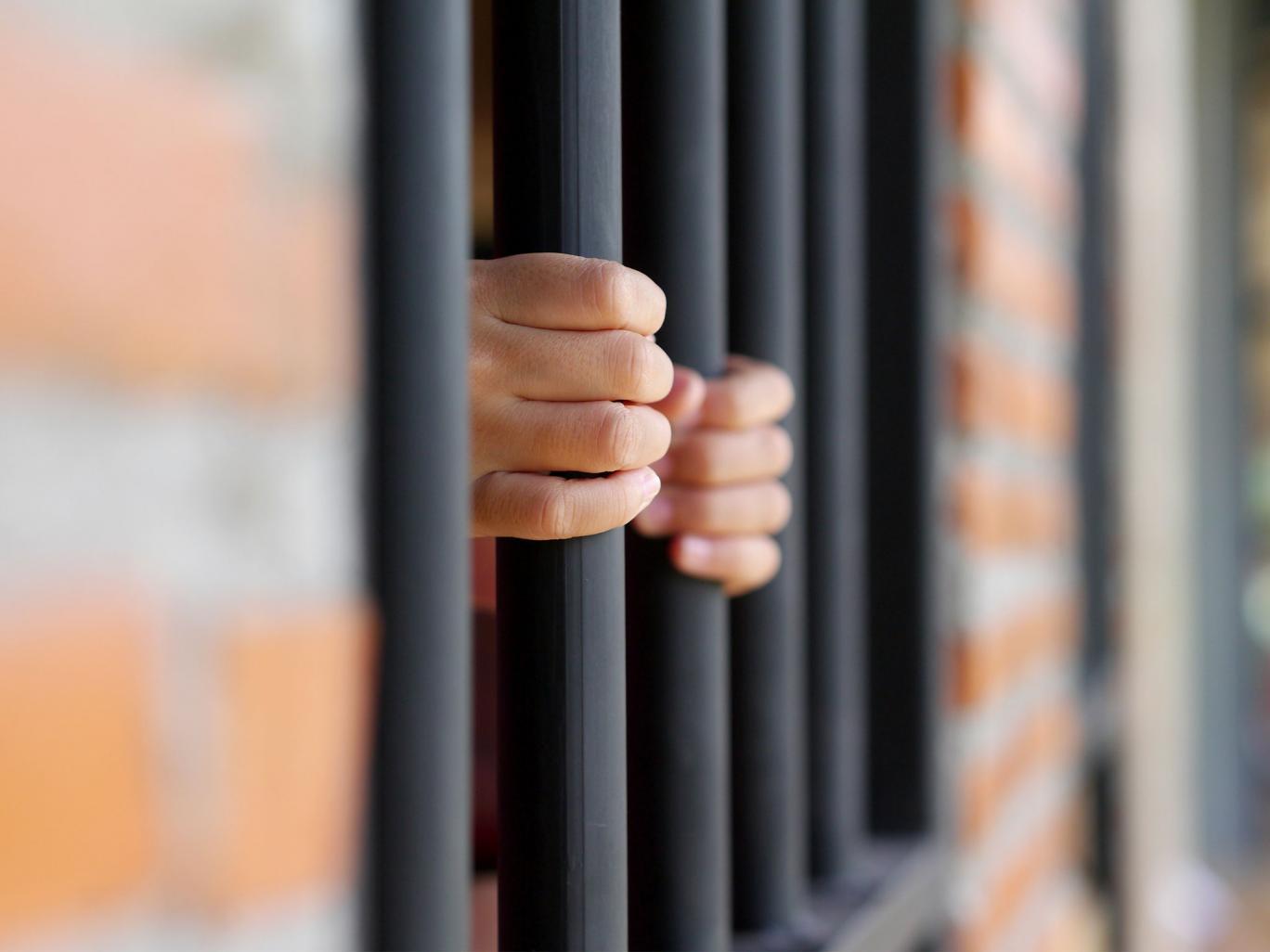‘I was released with an HMP bag. That was it’: Female prisoner on going from jail to homelessness
New report finds six in ten women are released from prison to homelessness

Your support helps us to tell the story
From reproductive rights to climate change to Big Tech, The Independent is on the ground when the story is developing. Whether it's investigating the financials of Elon Musk's pro-Trump PAC or producing our latest documentary, 'The A Word', which shines a light on the American women fighting for reproductive rights, we know how important it is to parse out the facts from the messaging.
At such a critical moment in US history, we need reporters on the ground. Your donation allows us to keep sending journalists to speak to both sides of the story.
The Independent is trusted by Americans across the entire political spectrum. And unlike many other quality news outlets, we choose not to lock Americans out of our reporting and analysis with paywalls. We believe quality journalism should be available to everyone, paid for by those who can afford it.
Your support makes all the difference.“I was released with no money,” Lila* tells The Independent. “I was released with a HMP bag. That was it. I was homeless. I had nothing to go back to. After that I ended up working on the streets as a prostitute”.
The 40-year-old, who lives in the Greater Manchester area, said she was detained on remand in Styal, a women’s jail in Cheshire, for three months before being released without charge.
”My ex-boyfriend went to prison for intent to supply drugs,” Lila adds. “He got nearly nine years. He was selling to provide for his own addiction to heroin. Not to make loads of personal money.”
She said was remanded as an attempt to get her to speak to the police about his drug dealing but she refused to do so - as well as a punishment for witnessing the dealing but not reporting him.
“Styal was awful,” Lila, who was in jail back in 2001, recalls. “Three girls killed themselves on my wing in the time I was there. You weren’t allowed out of the pad for long. Styal was really backward. Awful food. No education. No books. Unless you are in there for a while you don’t get anything like that. Trust me, things haven’t changed for remand prisoners. They are still released with nowhere to go.”
After leaving jail, she borrowed £10 off a man she knew for drugs, which resulted in him relentlessly hounding her for money as she could not afford to pay him back.
“I ending up giving him sex,” Lila, who is now a volunteer at Revolving Doors, a charity which helps people trapped in the cycle of homelessness, crime and mental health issues, adds. “That was the first time I ever did anything sexual for money. He sexually and psychologically abused me. When I left prison, I thought how am I going to make money. I ended up being in addiction a longer time from the prostitution. But I thought if I do prostitution, I won’t go back to prison because it’s not shoplifting or drug dealing.”
Lila’s story echoes the findings of a new report which found six in ten women are released from prison to homelessness.
The study, carried out by the Safe Homes for Women Leaving Prison initiative, warned a failing system is resulting in thousands of women being released from jails with just £46, a plastic bag, and nowhere to live.
Campaigners warned some 65 per cent of people released from jail without settled accommodation reoffend as they called for agencies across the criminal justice system to take urgent measures to tackle this.
Dr Amanda Brown, a GP at HMP Bronzefield which took part in the research, said: ”I have been working as a prison doctor at HMP Bronzefield for five years and for the NHS for a total of 40 years and this situation has shocked me more than any other aspect of my working life.
“I find it deeply distressing that so many of the women I meet are repeatedly released to homelessness. By far, the majority of them are extremely vulnerable and come from shockingly troubled backgrounds. Many say the only way they can cope is to blot out reality with drug and alcohol abuse, and that however much progress they make addressing their addictions in prison, homelessness will inevitably lead them straight back to substance abuse, crime and imprisonment.
“I am told time and time again that vulnerable women have committed a crime in order to return to custody so that they have a bed to sleep in and feel safe at night. Some even ask for a longer sentence as they fear being released into homelessness.”
Campaigners warned women have the prospect of being forced to go back to custody if they miss a probation appointment - adding that slipping back into addiction issues with no settled housing or secure employment is virtually impossible.
But the Ministry of Justice said that their own figures showed that more than 57 per cent of women released from custody go into long-term accommodation or an approved premises.
A spokesperson added: “But we are not complacent about this issue, which is why we’re working closely with councils, landlords and charities to help more prison leavers into stable accommodation and increasing spaces in approved premises.”
John Plummer, of the London Prisons Mission, which conducted the new report alongside other groups, said: “This report is a damning indictment of a system that is failing vulnerable women, society and the taxpayer.
“We have an absolute duty as a society to ensure women in prison can continue their recovery and rehabilitation in safe homes when discharged. This duty is not being met. As a result, vulnerable women with complex needs are being placed at risk of abuse and exploitation every day and subjected, alongside their families, to great ongoing distress.
“The increased likelihood of reoffending and waste of public funds that results from avoidable repeated imprisonment is alone sufficient reason to ensure these women have access to safe and secure housing on release.”
Jenny Earle, of the Prison Reform Trust, who were also involved in the research, said women who leave jail with no home to go to are being “set up to fail”.
She added: “Efforts so far to improve housing outcomes have been insufficient, patchy and intermittent. We now need urgent and concerted action to ensure that women have a chance to rebuild their lives and give their children a brighter future.
“These findings and recommendations are the result of extensive consultation with organisations, institutions and individuals across the criminal justice system who all say the same thing. The system is broken, and local and central government need look no further than this report for the solutions.”
Frontline service providers have frequently warned that women in prison are often the victims of more serious offences than those for which they have been convicted. A previous report from the Prison Reform Trust found 80 per cent of women in jail were there for non-violent offences.
Nathan Dick, of Revolving Doors, said: “If you were released prison into homelessness with £46, how long would it be before you’d steal to feed yourself, how soon would you turn to drink and drugs, how long before you had a mental health crisis? Releasing people homeless creates misery, leads to preventable crime and victims.
“It shouldn’t be too much to ask that someone released from prison has a safe place to call home."
Dr Kate Paradine, chief executive of Women in Prison, told The Independent everyone should have a “safe and stable” place for a home which they can “rebuild their lives from”.
She added: “We know homelessness is a major driver of women coming into contact with the criminal justice system. Addressing the root causes of offending which include poverty, debt, domestic abuse and a lack of affordable housing, is the key to preventing women ending up in prison in the first place.
“Government should use the upcoming Spending Review to sustainably fund specialist community-based services to support women with the specific and complex issues that they face, and achieve their commitment to radically reduce the number of women who are imprisoned.”
Jessica Southgate, chief executive of Agenda, a charity which campaigns for women and girls at risk, noted many women who sleep rough have escaped abusive partners.
“Yet their only option when they are released from prison is to go back on the streets or return to live with their abuser,” she added. “Lack of a stable home makes it more difficult for women to get a job, make friends or get the support they need, including having contact with their children. It also makes it harder for them to meet licence conditions, putting them at risk of breaching and recall to prison - and so the cycle begins again.”
*Lila’s name has been changed to protect her identity



Join our commenting forum
Join thought-provoking conversations, follow other Independent readers and see their replies
Comments